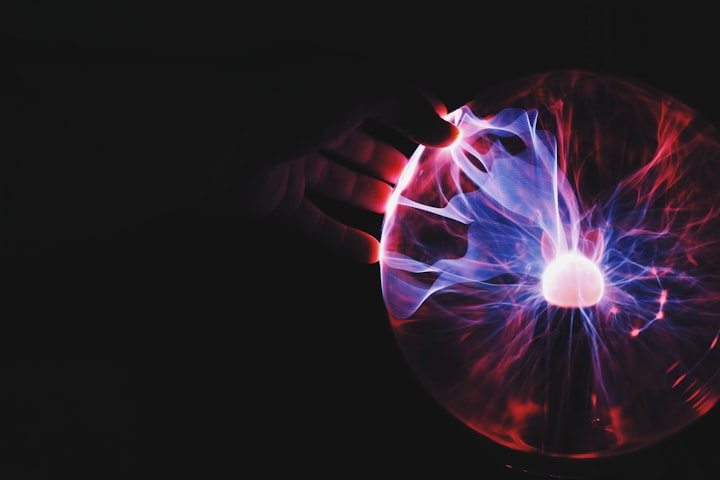
It's not accurate to say that one is better than the other as AI and humans have different strengths and weaknesses, and they excel at different tasks.
AI is better than humans at tasks that require processing vast amounts of data, analyzing patterns, and performing repetitive tasks with accuracy and speed. For example, AI can analyze large datasets and identify patterns in seconds or minutes, while it would take humans days or even weeks to do the same task.
On the other hand, humans are better at tasks that require creativity, emotional intelligence, and intuition. For example, humans can generate creative ideas, empathize with others, and make decisions based on their experience and intuition.
Therefore, it's important to recognize the strengths of both AI and humans and leverage their unique abilities to work together to solve complex problems and achieve our goals.
SIMILARITIES AND DIFFERENCES :
AI and humans are different in many ways, but they also have some similarities. Here are a few differences and similarities between AI and humans:
Differences:
Intelligence: AI is designed to mimic human intelligence, but it is not yet capable of matching the level of intelligence that humans possess.
Emotions: AI lacks emotions, while humans are capable of experiencing a wide range of emotions.
Creativity: While AI can generate outputs that appear creative, it does not have the same level of imagination or originality as humans.
Learning: AI can learn from vast amounts of data in a short time, whereas humans require extensive training and practice to master a skill.
Limitations: AI has limitations on what it can do and how it can think, while humans are adaptable and can find creative solutions to problems.
Similarities:
Problem-solving: Both AI and humans can solve problems, although they may use different approaches.
Memory: AI has the ability to store and retrieve vast amounts of data, just like humans.
Communication: Both AI and humans can communicate with each other, although AI currently lacks the ability to understand natural language at the same level as humans.
Decision-making: Both AI and humans can make decisions,
CAN AI WILL TAKE PLACE OF HUMAN :
It's unlikely that AI will completely replace humans, as there are certain tasks that require the unique abilities of humans, such as creativity, empathy, and intuition. However, AI is expected to automate many routine and repetitive tasks, which may result in some job displacement or transformation.
AI is currently being used to automate tasks in various industries, such as manufacturing, logistics, and customer service. As AI technology advances, it is likely that it will continue to automate more tasks and improve the efficiency and productivity of many industries.
However, it's important to note that AI is still limited in its ability to perform complex tasks that require human-like understanding, creativity, and decision-making. Therefore, there will always be a need for human skills and expertise in areas such as research, innovation, and management.
Overall, it's unlikely that AI will completely replace humans, but it will continue to transform the way we work and live, and it's important for us to prepare for these changes and adapt to the new opportunities and challenges that AI will bring.
AI IN FUTURE :
AI is expected to have a significant impact on various industries and domains in the future. Here are some potential areas where AI is expected to play a crucial role:
Healthcare: AI is expected to revolutionize the healthcare industry by enabling faster and more accurate diagnoses, personalized treatment plans, and drug development. AI algorithms can analyze vast amounts of patient data, medical images, and genetic information to identify patterns and make predictions, which can assist doctors and researchers in providing better care and developing new treatments.
Education: AI has the potential to transform the way we learn by providing personalized and adaptive learning experiences, assessing student performance, and providing feedback. AI-powered educational tools can analyze student data and provide customized learning paths and materials that cater to individual learning styles and needs.
Transportation: Self-driving cars and drones are expected to become more prevalent in the future, which will significantly reduce traffic accidents and improve transportation efficiency. AI algorithms can analyze traffic patterns, weather conditions, and other data to optimize routes and improve safety.
Finance: AI can help financial institutions to analyze data and make more accurate predictions about stock prices, consumer behavior, and risk management. AI-powered chatbots can also provide customer service and support, which can reduce costs and improve customer satisfaction.
Agriculture: AI can help farmers to optimize crop yields, reduce waste, and conserve resources by analyzing data on soil quality, weather patterns, and crop health. AI algorithms can also identify pests and diseases early, which can prevent crop damage and improve harvests.
These are just a few examples of the potential impact of AI in the future, and it's likely that AI will continue to transform various industries and domains in the coming years.
About the Creator
Maaz Ali
writer
photographer
content creator





Comments
There are no comments for this story
Be the first to respond and start the conversation.